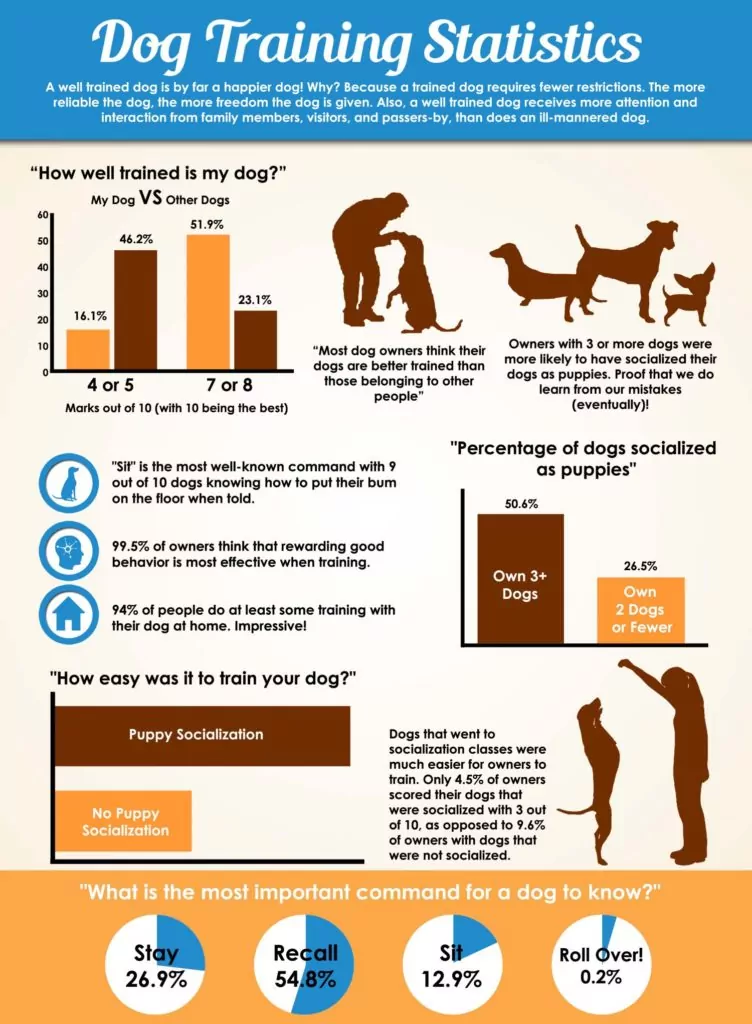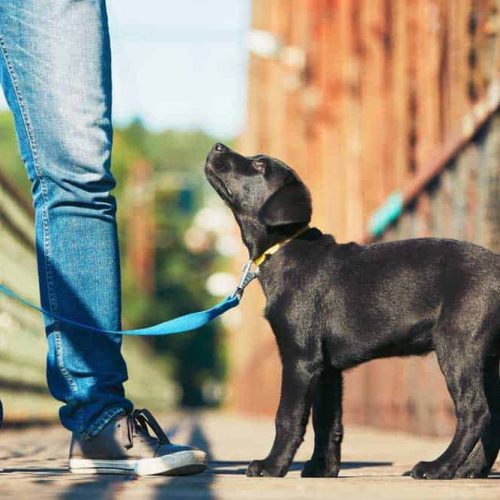Picking the Right Dog Training For Dogs: Discovering the Best Approaches for Success
Picking the Right Dog Training For Dogs: Discovering the Best Approaches for Success
Blog Article
Leading Pet Educating Strategies for every single Phase of Your Pet's Life
Effective dog training is important at every stage of a pet dog's life, as each phase presents special obstacles and opportunities for development - Dog Training For Dogs. From the fundamental bonding strategies essential for pups to the tailored techniques needed for senior pet dogs, recognizing these essential durations can significantly enhance the human-animal bond. It is essential to recognize that training should develop together with a canine's growth, making certain that approaches continue to be pertinent and reliable. What specific techniques can be used to address the varying demands of your canine as it develops? The solution may shock you.
Young Puppy Training Basics
Puppy training fundamentals lay the groundwork for a mannerly grown-up dog and include several key elements that must not be forgotten. The first stage of training focuses on developing a strong bond between the puppy and its owner, which is vital for effective interaction. Socializing is vital; subjecting young puppies to different atmospheres, people, and various other pets assists them establish self-confidence and flexibility, decreasing the likelihood of behavioral problems later in life.
Fundamental commands, such as sit, stay, and come, create the foundation of obedience training. Making use of positive reinforcement techniques, such as treats and praise, encourages preferred actions and fosters a positive discovering experience. Consistency in commands and training sessions is essential, as pups grow on routine and framework.
Furthermore, residence training is a necessary aspect of pup training. Establishing a routine schedule for restroom breaks and making use of designated locations can aid reduce crashes and promote good practices. Overall, an all-round strategy to puppy training, integrating home, obedience, and socializing training, establishes the phase for a well-adjusted adult dog, making sure an unified relationship between the family pet and its proprietor.
Teenage Behavior Administration
As pups grow into adolescents, their habits can alter significantly, commonly offering new difficulties for proprietors. This developmental stage, normally occurring between six months and two years, is noted by enhanced power degrees, interest, and a blossoming feeling of freedom. Recognizing these changes is vital for reliable habits management.
Teenagers may exhibit rebellious propensities, such as neglecting commands they previously grasped or taking part in damaging habits. Uniformity in training remains extremely important; strengthening discovered habits through positive support can help neutralize these difficulties. Brief, interesting training sessions are crucial to maintain their interest and focus.

Additionally, establishing a structured routine can dramatically enhance a teen pet dog's complacency. Regular exercise is important to transport their power favorably, lowering the likelihood of undesirable behaviors. By employing these techniques, owners can successfully browse the intricacies of teen habits, promoting a well-adjusted, happy canine friend.
Grown-up Pet Obedience Techniques

Favorable reinforcement stays a vital technique; satisfying excellent behavior with treats, appreciation, or playtime encourages image source compliance. Uniformity is essential; the exact same commands and incentives should be utilized by all household participants to stay clear of confusion.
Including training right into daily routines can likewise work. For instance, practice commands during walks or meal times, enabling training to blend effortlessly right into day-to-day life. Taking part in organized tasks, like agility programs or obedience courses, can further boost a pet's abilities while providing beneficial socializing chances.
It is essential to recognize that grown-up canines might additionally show stubbornness or complacency. Readjusting training strategies to keep their interest, such as varying incentives or presenting new commands, can help receive inspiration. In general, an ongoing commitment to obedience training will cultivate a well-behaved and balanced adult pet.
Elderly Canine Adaptation Approaches
Acknowledging the special requirements of senior dogs is crucial for guaranteeing their comfort and well-being. As pet dogs age, they might experience a decline in movement, vision, and cognitive feature, necessitating tailored adjustment approaches.
First, take into consideration modifying the living environment. Make sure that the home is easily accessible and risk-free; eliminate obstacles and provide non-slip surfaces to protect against falls. In addition, consider utilizing actions or ramps to assist them access their preferred areas.
Secondly, exercise should be adapted to represent lowered stamina and joint health (Dog Training For Dogs). Take part in much shorter, more constant walks, and include mild activities like swimming, which can be valuable for arthritic joints
In addition, mental stimulation stays essential. Use simple problem toys or engage in scent work to maintain their minds sharp, while avoiding frustrating tasks that might discourage them.
Lastly, routine veterinary examinations are vital to check wellness adjustments and adjust treatment routines appropriately. By implementing these adaptation approaches, you can boost the high quality of life for your senior pet, guaranteeing they age beautifully and pleasantly.
Lifelong Understanding and Enrichment
While pet dogs of any ages gain from learning and psychological excitement, lifelong enrichment is specifically crucial for maintaining cognitive wellness and emotional well-being in both elderly and more youthful pet dogs. Involving activities not only enhance a dog's top quality of life yet additionally enhance the bond between the canine and its owner.
Enrichment can take various kinds, consisting of interactive playthings, challenge feeders, and aroma job, which promote a canine's detects and motivate problem-solving. Regular training sessions, incorporating brand-new commands or methods, keeps their minds sharp and promotes a feeling of achievement. Socialization with various other pets and people is equally essential, as it aids prevent behavior concerns and promotes adaptability.
Moreover, including workout into a dog's regimen is necessary for general health. Tasks like dexterity training, fetch, or long strolls supply both physical and psychological excitement, you can find out more making sure canines remain satisfied and involved.
Lastly, consider differing the setting by introducing brand-new places for walks or playdates. This modification can reignite a canine's curiosity and enthusiasm for expedition. Lifelong discovering and enrichment not only add to a satisfying life yet likewise promote a harmonious partnership with your canine buddy.
Verdict
Efficient dog training techniques advance throughout a pet dog's life, addressing the unique demands of each developmental phase. From establishing fundamental skills in puppies to handling adolescent habits, reinforcing obedience in grownups, and adjusting strategies for elders, a thorough strategy makes certain optimum communication and habits. Highlighting normal psychological stimulation, socialization, and exercise cultivates a well balanced and satisfying life for pets. Ultimately, consistent application of these methods adds to an unified relationship between canines and their human buddies.
Effective canine training is necessary at every phase of a pet's life, as each stage offers one-of-a-kind obstacles and possibilities for development.Puppy training basics lay the foundation for a mannerly grown-up dog and involve several essential elements that need to not be overlooked. In general, a well-shaped approach to puppy training, integrating obedience, socialization, and home training, establishes the stage for a well-adjusted grown-up dog, making sure an unified connection in between the pet dog and its proprietor.
Numerous canine owners might find that adult dogs, while generally even more secure in actions browse around these guys than their teenage equivalents, still need regular training to maintain obedience and good manners.Effective canine training strategies advance throughout a canine's life, attending to the special requirements of each developing stage.
Report this page